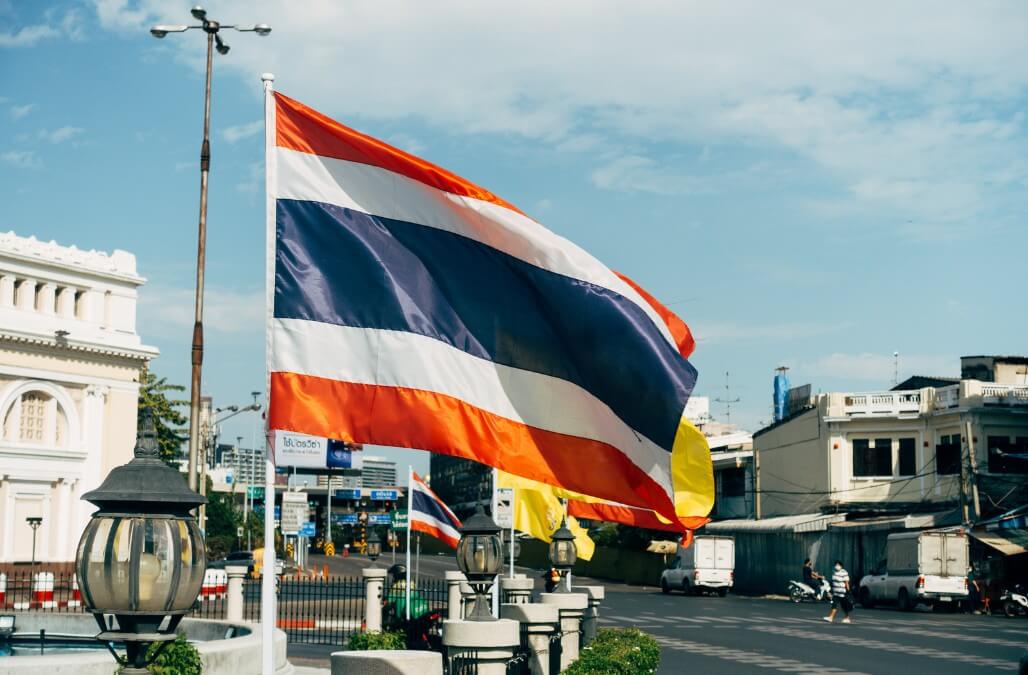The Thailand government is set to implement measures to tighten tax regulations about overseas income. This move is part of the new government’s efforts to reduce income inequality and generate additional revenue for initiatives to stimulate the Southeast Asian economy.
Prime Minister Srettha Thavisin announced that the finance ministry recently introduced more stringent rules concerning overseas income. The new regulation, slated to be enforced from January 1, 2024, allows authorities to levy taxes on the foreign income of individuals who have resided in Thailand for a minimum of 180 days within the specified assessment year. The Thai Revenue Department’s announcement confirmed this development.
Prime Minister Srettha emphasized the importance of addressing income inequality, acknowledging that delving into tax regulation might not be welcomed by everyone. He highlighted that paying taxes on earned income is a fundamental principle of taxation, regardless of how that income is obtained.
The new coalition government in Thailand, led by the Pheu Thai Party, needs revenue to fund its stimulus plan, a key component of Prime Minister Srettha’s economic agenda. One significant measure introduced by his administration is a 560 billion baht (approximately S$21.4 billion) cash distribution to 55 million Thai adults, planned for the first quarter of the upcoming year to stimulate domestic demand.
Thailand’s economy is fragile
The Thai economy is under scrutiny due to persistent concerns about the possibility of an impending recession stemming from the nation’s sluggish export prospects and slow recovery from the pandemic. During a recent Thai economic policy debate, the government faced substantial criticism from opposition parties and business leaders. The latter expressed apprehension regarding the lack of specifics in the 43-page policy statement outlining economic recovery plans.
One of the government’s stimulus initiatives, the 10,000-baht digital wallet scheme, which requires an estimated budget of 560 billion baht, has raised questions about funding sources. Nonetheless, Somjai Phagaphasvivat, an independent political and economic analyst, contended that there are currently no clear indicators of an impending recession in the Thai economy. He stated that the chance of a recession is very low unless there is an economic crisis, such as a rapid surge in energy prices.
Somjai also underscored the government’s economic stimulus measures, including the digital currency distribution scheme, which is anticipated to contribute 1% to GDP growth in the upcoming year. The National Economic and Social Development Council had previously revised its economic growth projection 2023 to a range of 2.5-3% due to the global economic deceleration.
Chaichan Chareonsuk, Chairman of the Thai National Shippers’ Council, stated that Thailand does not meet the economic recession criteria. He characterized the current state of the Thai economy as a technical recession or a short-term slowdown confined to this year. He clarified that this year’s economy is sluggish, in a slow-growth phase, but has not reached a recession.
Similarly, the Employers’ Confederation of Thai Trade and Industry (EconThai) posited that the present economic conditions do not signal an imminent recession. Tanit Sorat, Vice-Chairman of EconThai, acknowledged that the deceleration will influence the Thai economy in other countries, particularly the US and Europe. However, he remained optimistic about Thailand’s economic outlook.
Thai government approves higher budget for fiscal 2024
The newly appointed cabinet in Thailand has given its approval for increased budget spending of 3.48 trillion baht (approximately $97.64 billion) for the fiscal year 2024. Additionally, a larger budget deficit of 693 billion baht has been sanctioned, as Deputy Finance Minister Julapun Amornvivat stated. These augmented allocations are part of the new government’s efforts to implement fresh policies to revive a sluggish economy hampered by subdued export demand and diminished investor confidence.
The revised budget for Thailand is higher than the one approved by the previous government, which had projected spending of 3.35 trillion baht and a deficit of 593 billion baht. The newly approved budget envisions a 9.3% increase in spending and a slight reduction of 0.3% in the budget deficit to 693 billion baht, equivalent to 3.63% of gross domestic product (GDP), compared to the current fiscal year, as reported by the Budget Bureau.
Additionally, the cabinet approved a 10.3% reduction in electricity bills, effective September, bringing the cost down to 3.99 baht per unit. This move is intended to alleviate the cost of living for residents.





